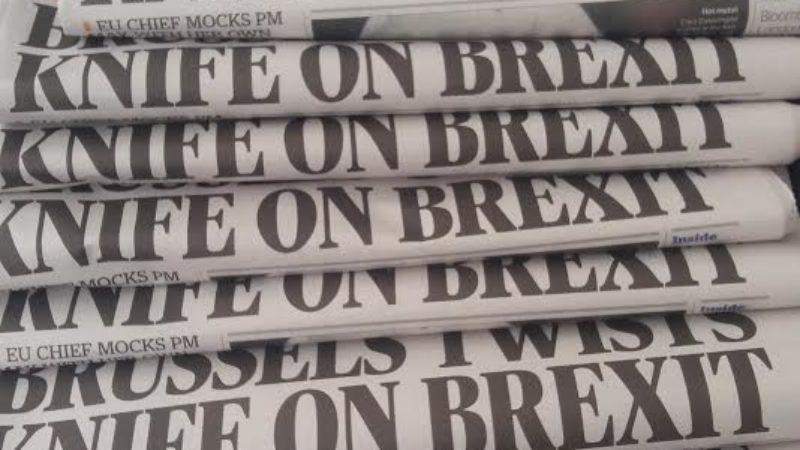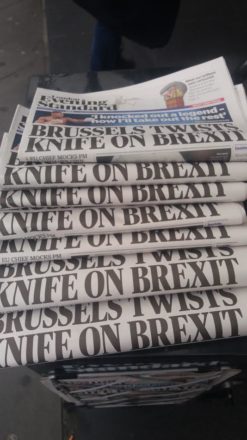

It was the most unlikely, and controversial, appointment in the print media for a generation. Now, however, the former Tory chancellor at the helm of the biggest newspaper in a Labour city has finally got started in his new job.
George Osborne’s first day as editor of the London Evening Standard was spent attacking Theresa May and Jeremy Corbyn. Peter Edwards, a former newspaper reporter and leader writer, looks at what the newspaper said and what it means for the press, the public and the opposition.
The Tories
Osborne attacked the prime minister who sacked him, splashing the paper the row between May and senior EU figures such as Guy Verhofstadt, the European parliament’s Brexit co-ordinator. “Brussels twists the knife on Brexit”, roared the headline, although surely it was the Standard editor who twisting it as well. The new editor also aimed some jibes at former cabinet colleagues, such as Michael Gove, in an editorial which said: “We don’t think people in this country have had enough of experts”.
Labour
As chancellor, Osborne was known for relentless attacks on Labour and his opposite number, Ed Balls – but these frequently backfired. Yesterday he stuck the boot into the current shadow cabinet, running one headline accusing Abbott of giving the “worst interview ever” following her difficulties explaining Labour’s police pledge on LBC Radio. The paper also ran unflattering cartoons of all four main party leaders, including one featuring a grumpy-looking Corbyn driving a London bus with a destination of “The 1970s”.
Brexit
The capital overwhelmingly backed Remain in last year’s referendum campaign while Osborne was, of course, the chief scaremonger over the dangers of Brexit. A lengthy editorial branded the decision an “historic mistake” but pledged to “respect that democratic decision”. Londoners can expect a blow-by-blow account of May’s bungling attempts to fashion a deal for leaving the EU that does not hit the economy.
London and its people
Osborne, five years younger than David Cameron, was always seen as more urban and cosmopolitan compared to the Cotswolds-dwelling prime minister. He used his first morning at the 900,000 copies a day Standard to position the paper as modern, outwards-facing and outspoken. Its leader declared: “As the voice of London for 190 years, this newspaper will go on holding those in power to account without fear or favour. We will be the voice of London on issues from air quality to knife crime — as we are today — but we won’t restrict ourselves to issues that primarily affect the capital.”
The press
When he was appointed, to widespread amazement, in March, Osborne made no secret of the fact he had “a lot to learn” about newspapers. Now, six weeks on, he has picked up some of the traditions and the jargon. He arrived at 7am to a traditional “doorstep” interview outside the newspaper’s offices in Kensington, West London, before saying he had to get on with the job of getting the paper “offstone” (completed and sent to print). He also spent time on the back bench, where key decisions on production are made by experienced journalists.




More from LabourList
Government abandons plans to delay 30 local elections in England
‘The cost of living crisis is still Britain’s defining political challenge’
‘Nurses are finally getting the recognition they deserve’